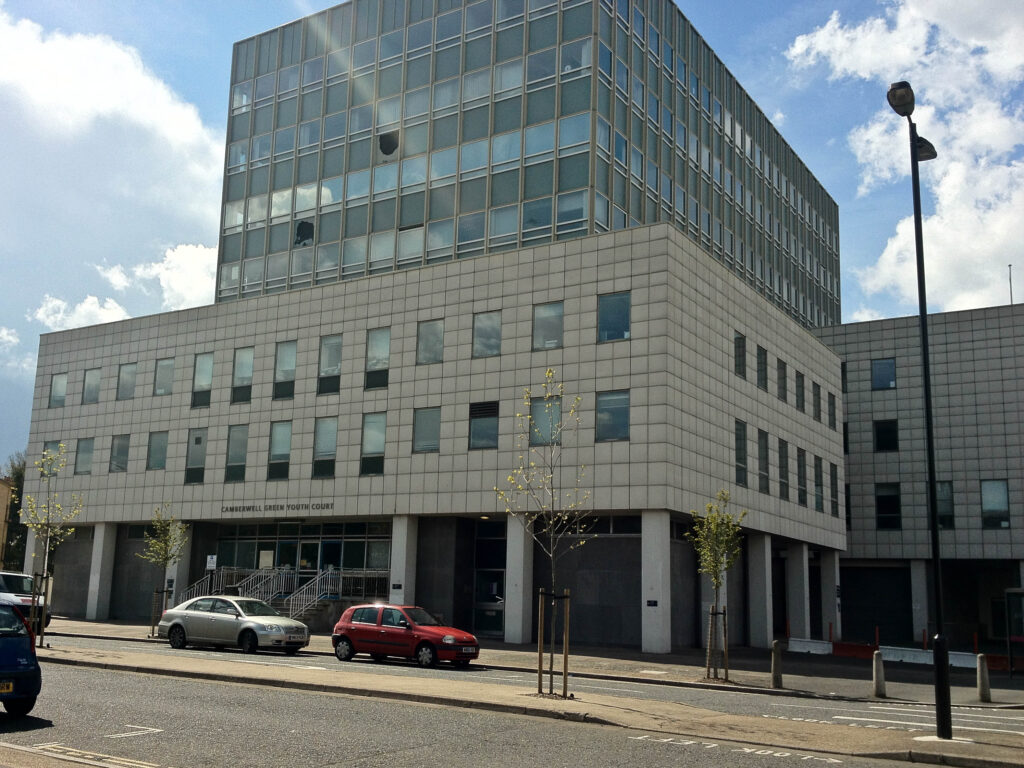Juvenile Court Overview

Court Address:
The Juvenile Court is located at:
2851 Meadow Lark Drive, San Diego, CA 92123
Phone Number:
To inquire about a juvenile case, court dates, or general procedures, contact the court directly at:
📞 (858) 634-1600
Hours of Operation:
The Juvenile Court is generally open:
Monday through Friday, 8:00 AM to 5:00 PM
Note: Hours may vary by department or case type. It’s strongly advised to call ahead or visit the court’s website for the most up-to-date information.
Website:
For court calendars, department details, case filing info, and juvenile justice resources, visit the official San Diego Superior Court website:
👉 San Diego Superior Court – Juvenile Division
Need Bail Help at the Juvenile Court?
At Armstrong Bail Bonds, we understand how emotional and urgent juvenile cases can be. If your child or loved one is being held in juvenile custody, our agents are available 24/7 to provide fast, confidential support. We work directly with local juvenile detention centers and the Juvenile Court to help families navigate the system and secure timely release when possible.
📞 Call us now for immediate assistance: (818) 241-2171
🏛️ Jurisdiction & Case Types – Juvenile Court, San Diego
The Juvenile Court in San Diego County is a specialized branch of the Superior Court system dedicated to handling matters involving minors. Located in the Kearny Mesa area, this court oversees legal proceedings involving individuals under the age of 18 who are accused of violating the law or are the subject of child welfare investigations.
Unlike adult criminal courts, the Juvenile Court emphasizes rehabilitation over punishment, aiming to provide minors with resources, support, and supervision to help them grow into responsible adults.
⚖️ Types of Cases Handled by Juvenile Court
🔹 Juvenile Delinquency Cases
These involve minors who are alleged to have committed criminal acts. While the court proceedings differ from adult criminal trials, serious offenses can still result in detention or placement in a juvenile facility.
Common delinquency charges include:
- Vandalism or graffiti
- Assault and battery
- Drug possession or sales
- Theft and burglary
- Weapons possession
- Gang-related activity
- School threats or disturbances
🔹 Juvenile Dependency Cases
Dependency cases are filed when a child is believed to be abused, neglected, or at risk in their home environment. These cases often involve Child Welfare Services (CWS) and may result in removal from the home or court-ordered family reunification plans.
Issues involved in dependency court include:
- Parental neglect or abandonment
- Substance abuse in the home
- Physical, emotional, or sexual abuse
- Failure to protect the child from harm
🔹 Truancy & Status Offenses
The Juvenile Court also handles cases where minors are not attending school regularly or are engaging in other non-criminal but problematic behaviors, such as running away or violating curfew.
👨👩👧 Age & Transfer Jurisdiction
- Most cases involve minors between ages 12 and 17.
- In very serious felony cases, such as murder or armed robbery, a juvenile may be transferred to adult court under California Welfare & Institutions Code § 707(b).
Whether you’re navigating a delinquency or dependency matter, the San Diego Juvenile Court plays a critical role in determining both the legal consequences and support services needed for minors and their families. At Armstrong Bail Bonds, we are here to help guide you through the process with compassion and urgency.
How Bail Works at the Juvenile Court in San Diego
Unlike the adult court system, bail is not typically part of the juvenile justice process in San Diego. Instead of posting a financial bond to secure release, juveniles undergo a detention review process where a judge or probation officer decides whether they should remain in custody or be released to a parent or guardian.
That said, if your child is facing juvenile charges, it’s essential to understand the steps to secure their release—and how Armstrong Bail Bonds can still help.
🧾 Juvenile Arrest & Detention Process
When a minor is arrested, they are generally taken to one of two juvenile detention facilities in San Diego County:
East Mesa Juvenile Detention Facility (EMJDF) – Primarily for boys
Kearny Mesa Juvenile Detention Facility (KMJDF) – Primarily for girls and some boys
At intake, a probation officer evaluates the situation and decides whether the minor should be:
Released to a parent or guardian, or
Held in custody for further review
📆 Detention Hearing (Within 48–72 Hours)
If the minor is not released immediately, they must appear before a juvenile court judge within 72 hours (excluding weekends and holidays) for a detention hearing.
At this hearing, the court decides:
Whether to continue holding the youth
Or release them under supervision or conditions
There is no monetary bail, but the judge may impose restrictions such as house arrest, GPS monitoring, or community-based supervision if the child is released.
🔍 What the Court Considers When Releasing a Juvenile
Several factors impact the judge’s decision at the detention hearing, including:
The seriousness of the offense
Prior arrest or delinquency history
School attendance and behavior
Whether the minor is a flight risk
The level of support and supervision at home
A strong family presence and preparation can make a significant difference in achieving release.
💡 When Bail Might Apply
In some rare but serious cases—such as violent felonies or repeat offenses—a minor may be tried as an adult under California Welfare & Institutions Code § 707(b).
If that occurs, the juvenile case is transferred to adult court, and standard bail procedures apply.
That’s where Armstrong Bail Bonds steps in immediately to:
✅ Review bail conditions
✅ Submit the bond
✅ Secure release fast, with flexible plans for families in need
🤝 Armstrong Bail Bonds – Juvenile Case Support
Even when monetary bail isn’t used, our team supports families through every stage of the process:
✅ 24/7 availability for immediate help
✅ Court date reminders and hearing guidance
✅ Assistance with visitation and detention logistics
✅ Coordinating with legal counsel and facility staff
✅ Bail services if a case is transferred to adult court
📞 Call us anytime for experienced help navigating San Diego’s Juvenile Court system:
(818) 241-2171 — Fast, compassionate, and local.


👩⚖️ Court Appearances & Visitation – Juvenile Court, San Diego
After a juvenile is detained, their legal journey begins at the Juvenile Court located at 2851 Meadow Lark Drive in San Diego. Unlike adult court, juvenile proceedings are generally closed to the public and follow a different timeline and procedure. However, parents and legal guardians play a central role in attending hearings and supporting their child through the process.
Juvenile Court Hearing Responsibilities
Once a minor has been taken into custody, they are typically scheduled for a detention hearing within 48 to 72 hours (excluding weekends and holidays). This hearing determines whether the youth will remain detained or be released to a parent or guardian while the case continues.
Common types of hearings in the juvenile court process include:
- Detention Hearing – Determines if the youth will be held or released
- Jurisdictional Hearing – Similar to a trial; the judge hears evidence and decides if the allegations are true
- Disposition Hearing – If found responsible, this is where the court assigns consequences, treatment, or services
- Review Hearings – Monitor compliance with probation or court-ordered programs
It is critical that parents attend all hearings to support their child and comply with court orders. Missing a hearing can delay the process or negatively impact the outcome.
What Happens If You Miss a Court Appearance?
While minors are not subject to traditional bail, failing to appear at a scheduled juvenile court hearing can still have serious consequences, such as:
- Continued detention of the minor
- Loss of parental visitation rights
- More restrictive probation conditions
- Court sanctions or penalties for non-compliance
Armstrong Bail Bonds assists families with case tracking, court date reminders, and hearing prep to help ensure no appearance is missed.
Visitation for Juveniles in Custody
If your child is being held in juvenile detention (e.g., East Mesa Juvenile Detention Facility or Kearny Mesa Juvenile Detention Facility), in-person visitation may be possible—but must follow strict guidelines.
Visitation Scheduling
- All visits must be scheduled in advance
- Contact the facility directly to arrange visitation and verify eligibility
- Only approved visitors (usually immediate family) will be allowed
Requirements for Visiting
- A valid government-issued ID is required
- Visitors must adhere to a dress code and behavioral guidelines
- Personal items, phones, and bags are not permitted in the visitation area
- Visits may be monitored for safety reasons
To confirm visitation schedules and requirements, visit the San Diego County Sheriff’s Department website or call the appropriate detention facility directly.
✅ Armstrong Bail Bonds – Helping Families Stay Connected
At Armstrong Bail Bonds, we don’t just assist with adult bail—we help families through the juvenile justice process with respect, speed, and care. Our team can:
- Explain court procedures clearly
- Help you stay updated on court dates
- Assist with visitation scheduling
- Provide emotional support during a stressful time
📞 Call now if your child has been detained or is scheduled for court: (818) 241-2171
Common Charges Handled at the Juvenile Court – San Diego
The Juvenile Court in San Diego processes a wide range of offenses committed by individuals under the age of 18. These cases can vary in severity—from low-level infractions like truancy or shoplifting to more serious charges such as drug sales or assault. While the court focuses on rehabilitation rather than punishment, many of these cases still involve detention, court oversight, and mandatory programs.
Below are some of the most common juvenile offenses handled at this courthouse:
🧱 Vandalism & Property Damage
Juvenile vandalism is one of the most frequently filed charges and can include:
Graffiti or tagging public/private property
Breaking windows or damaging school property
Destroying signs or mailboxes
Depending on the amount of damage and prior history, these cases may be charged as misdemeanors or felonies. Courts often require restitution, community service, or counseling.
🚗 Auto Theft & Joyriding
Unauthorized use or theft of a vehicle is a common delinquency offense. Juveniles may face charges for:
Riding in a stolen vehicle
Evading police in a vehicle
Judges may impose strict probation terms, including GPS monitoring or placement in a juvenile facility.
💊 Drug & Alcohol Offenses
Substance-related charges are a major concern at the Juvenile Court, especially with rising rates of early drug use. Common charges include:
Possession of marijuana, vape pens, or pills
Underage alcohol consumption
Possession with intent to sell
Rehabilitation programs, substance abuse treatment, or Juvenile Drug Court may be ordered as part of disposition.
🔫 Weapons Possession
Carrying or concealing weapons—especially on school grounds—is treated seriously, even if no one was harmed. Charges can involve:
Possession of a firearm or knife
Bringing a weapon to school
Using objects as weapons during fights
These offenses can result in detention, counseling, and long-term probation.
🥊 Assault & Battery
Violent behavior among youth can lead to serious consequences. Assault-related charges include:
Fighting at school or in public
Harming another minor or adult
Threatening violence with intent to harm
Judges often assign anger management programs, restitution, or supervised probation.
🛍️ Theft & Shoplifting
Theft-related cases range from small incidents to serious criminal conduct. Examples include:
Shoplifting under $950 (petty theft)
Stealing phones, bikes, or electronics
Breaking into lockers or homes (burglary)
First-time offenders may qualify for diversion programs, while repeat offenses may lead to more restrictive measures.
📚 Truancy & Curfew Violations
These “status offenses” are not crimes for adults but still fall under the Juvenile Court’s jurisdiction:
Repeated unexcused absences from school
Violating local curfew ordinances
Running away from home
These cases often trigger probation referrals and counseling for both the minor and family.
🤝 Armstrong Bail Bonds – Here to Help Families Respond Fast
At Armstrong Bail Bonds, we understand how overwhelming it can be when your child is arrested. Whether your case involves drug charges, vandalism, assault, or any other juvenile offense, we’re here to help:
✅ 24/7 Guidance through the court process
✅ Help understanding release and detention options
✅ Coordination with legal counsel and court officials
✅ Emotional support during a stressful time
📞 Call now to speak with an experienced bail agent familiar with San Diego’s Juvenile Court system: (818) 241-2171
Frequently asked questions about Juvenile Court
Where is the Juvenile Court located?
The San Diego Juvenile Court is located at:
2851 Meadow Lark Drive, San Diego, CA 92123
It handles cases involving minors under 18 who are accused of criminal offenses, truancy, or are part of dependency proceedings.
What happens after a juvenile is arrested?
Once a juvenile is arrested, they are typically transported to either East Mesa Juvenile Detention Facility or Kearny Mesa Juvenile Detention Facility. A probation officer will review the case and determine whether the youth should be released to a parent/guardian or held pending a detention hearing.
How soon will my child appear in court?
If the minor is detained, they will generally have a detention hearing within 48 to 72 hours, excluding weekends and holidays. At this hearing, the judge decides if the child should be released or remain in custody.
Is bail available in juvenile cases?
Traditional bail is not used in the juvenile system. Instead, the judge determines detention or release based on factors like offense severity, home stability, and prior behavior. However, if a juvenile is tried as an adult, bail may apply—and Armstrong Bail Bonds can assist immediately.
Can parents attend juvenile court hearings?
Yes. Parents or legal guardians are required to attend all court hearings involving their child. These hearings are not open to the public, so family participation is crucial to the court process.
How do I visit my child in juvenile detention?
You must schedule a visit in advance with the detention facility (East Mesa or Kearny Mesa). Only approved visitors are allowed. Bring a valid government-issued ID, and follow all facility dress codes and behavior rules. Visit the San Diego County Sheriff’s Department website for current visitation info.
What types of cases are heard in Juvenile Court?
The San Diego Juvenile Court handles:
- Delinquency (criminal acts by minors)
- Dependency (abuse or neglect cases)
- Status offenses (truancy, curfew violations)
- Probation violations
Can Armstrong Bail Bonds help even if bail isn’t involved?
Absolutely. We help families understand the juvenile process, stay informed on court dates, communicate with detention staff, and assist in any adult-related charges tied to the juvenile case. If a case is transferred to adult court, we can secure bail immediately.
What happens if my child misses a court date?
Failing to appear can result in continued detention, court sanctions, or additional probation restrictions. Stay in touch with your attorney and Armstrong Bail Bonds—we help monitor court dates and can assist in rescheduling when possible.



